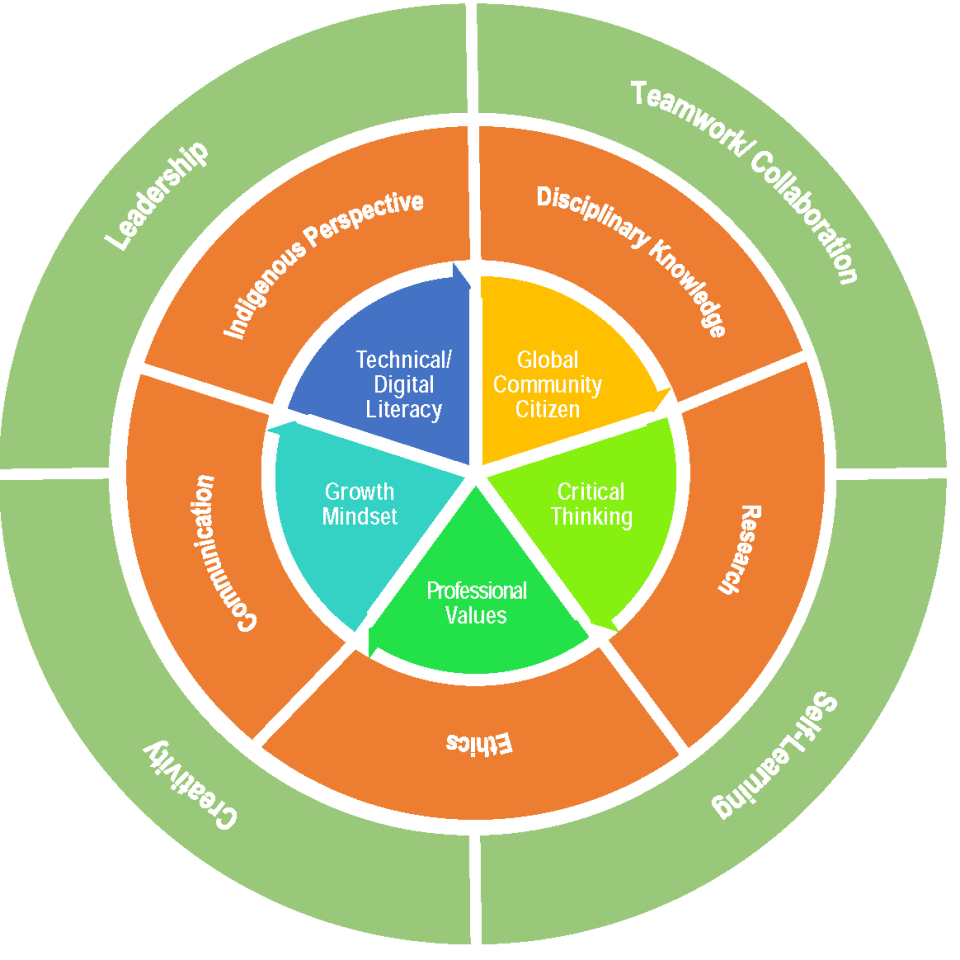
Core Program Learning OutcomesThere are 5 core program learning outcomes: critical thinking, global community citizen, growth mindset, technical/digital literacy and professional values. These are the core expectations that all students in the MBA program will have competencies in by the end of the program. |
Critical Thinking
Demonstrate critical and analytical thinking skills by evaluating and synthesizing information across all functional areas of business in both local and global contexts through projects and case studies.
Global Community Citizen
Demonstrate an ability to act as a global citizen through community engagement, incorporating financial, social, and environmental context in organizational and business decisions.
Growth Mindset
Exhibit a growth mindset through resilience and adaptability when faced with complexity and challenges.
Professional Values
Exhibit ethical, mature, and professional values in their behaviour in all decisions and contexts through peer- and self-assessments and observation.
Technical/Digital Literacy
Integrate technical, digital, and media literacies through applications of current and emerging technologies.
Secondary Program Learning OutcomesThere are 5 secondary program learning outcomes: communication, disciplinary knowledge, ethics, Indigenous perspective and research. These are expectations that most students in the MBA program will have competencies in by the end of the program. Some learning for this will come from the faculty and some will require independent application from the student. |
Communication
Communicate professionally, both orally and in writing, to bridge diverse perspectives, cultures, and disciplines, with appropriate audience awareness (sensitivity).
Disciplinary Knowledge
Apply knowledge of all the functional areas of business using integrated problem-solving skills and strategic analysis to be able to accurately assess the feasibility of business propositions, and develop an integrated plan for a business.
Ethics
Apply responsible business practices and ethical principles in analyzing business problems and making informed decisions through case studies, research, and coursework.
Indigenous Perspective
Be aware of Indigenous ways of knowing, learning, thinking, and perceiving.
Research
Integrate quantitative and qualitative research processes and methods by defining, analyzing, and solving business problems through cases and research projects.
Tertiary Program Learning OutcomesThere are 4 tertiary program learning outcomes: creativity, leadership, self-learning and teamwork/collaboration. These are expectations that some students in the MBA program will have competencies in by the end of the program. The majority of learning for these outcomes will require independent application from the student. |
Creativity
Generate creative, innovative, and entrepreneurial solutions to business problems.
Leadership
Collaborate effectively as a business leader and team member in various business and cross-cultural contexts using best practices to achieve common goals.
Self-Learning
Adopt an active self-learning mindset to be capable to address future challenges.
Teamwork / Collaboration
Demonstrate abilities in relationship building, teamwork, and application of MBA subject matter evaluated by self-reflection, assessment, and projects.
